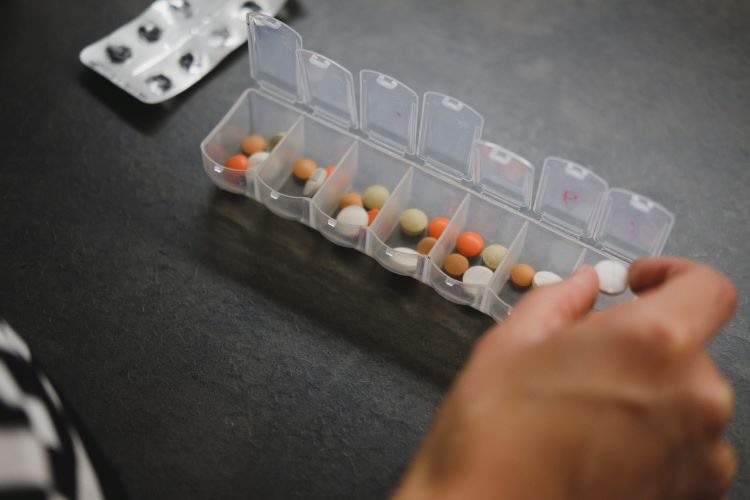Drug & Alcohol Rehab in Hamilton
Previous years in Scotland have seen a significant increase in the effects of drug and alcohol addiction.
2020 especially saw the highest rate of drug-related deaths in the country, with a staggering 1,339 deaths [1] across the country, making it the highest year on record for this statistic.
2021 saw 1,330 drug related deaths [2], and while it was a decrease (only 9 fewer), it was the second-highest year for this statistic that the country has seen.
According to NHS Scotland, Lanarkshire, including Hamilton, had the 4th highest rate of drug misuse deaths out of all the counties in Scotland.
Furthermore, studies from Alcohol Focus Scotland [3] estimate that in South Lanarkshire (which includes Hamilton), 1 in 3 men and 1 in 6 women in the region are drinking alcohol at a level which is hazardous to their health.
In the year 2020, 92 people in South Lanarkshire and Hamilton died due to their alcohol dependence.
This is a significant increase from the 60 deaths seen in the area back in 2018, as the increase in substance related deaths rates in Hamilton [4] and Lanarkshire represents some of the sharpest rises in Scotland.
Furthermore, the same study from Alcohol Focus Scotland claims that the rates of hospital admissions in Hamilton and other areas in South Lanarkshire are also higher than the national average.
It is estimated that alcohol-related harm costs the economy of Hamilton and the rest of South Lanarkshire around £93.83m annually. These costs are due to dealing with crime, social care, health services, and more associated with alcohol consumption.
Addiction is a Disease

It is important to not underestimate the severity of a drug and alcohol addiction.
When someone is suffering from an addiction, also known as substance use disorder, substance abuse (which has negative social connotations), and so on, they may succumb to a range of physical and psychological health complications which can lead to irreversible damage and even death.
Addiction is officially classified as a disease of the brain.
In our brains are ‘reward pathways’ which can stimulate us by releasing dopamine whenever we complete or take part in a fulfilling activity. With an addicted person, their reward pathways will have been altered in a way which becomes severely dependent.
This means that the addicted person turns towards this substance to experience pleasure and euphoria, and they will experience a range of physical and psychological withdrawal symptoms.
Drug and Alcohol Addiction Withdrawal Symptoms

There are withdrawal symptoms associated with drug and alcohol addiction during a period of abstinence. This is what makes it so difficult for people to overcome addiction.
People will relapse due to the extreme discomfort that their minds and bodies go through while they are abstaining from their addictive substance.
Some of the physical withdrawal symptoms associated with drug and alcohol addiction can not only cause physical harm, but they have the capacity to kill the person who is addicted.
Examples include but are not limited to headaches, fatigue, vomiting, abdominal pain, diarrhoea, trembling, seizures, and more.
Addicted people who are suffering from severe withdrawal symptoms will need to undergo a medicated detox at their drug and alcohol rehab in Hamilton.
Psychological withdrawal symptoms, although not as dangerous as physical withdrawal symptoms, can still cause a range of mental health issues.
Because of this, they will also need to be addressed at a drug and alcohol rehab in Hamilton. Examples of psychological withdrawal symptoms include insomnia, paranoia, anxiety, depression, hallucinations, and so on.
Drug and Alcohol Rehab Admission Process

Rehab Recovery‘s leading priority is to help patients receive swift admission into a drug and alcohol rehab in Hamilton which can optimally facilitate their recovery. With our expertise and your intrinsic motivation, we can combine to establish your recovery from addiction.
You can contact Rehab Recovery by dialling the number 0800 088 66 86, and you will be greeted by a friendly and experienced member of staff. You will then be able to ask a range of questions related to your addiction, the admissions process, rehab recovery, and so on.
Once you are ready to do so, we will help you complete the health assessment, which is a set of questions concerning your physical and mental health, medical history, addictive substance, and so on.
This information will help us, along with other addiction specialists, formulate an optimal addiction treatment plan which will optimise your recovery.
What Happens at a Drug and Alcohol Rehab in Hamilton?

The structure and process of recovering at a drug and alcohol rehab in Hamilton will vary depending on the patient’s unique requirements and whether they undergo treatment as an outpatient or an inpatient.
1. Inpatient Treatment at a Residential Rehab
At a residential rehab as an inpatient, patients will spend far more time undergoing a vast range of therapy and counselling sessions.
Some of the benefits of a residential rehab include maximised personalisation (which is key towards recovery), staying at a medically supported facility occupied by health professionals which is also a place devoid of relapse triggers, and more.
The intensiveness of treatment at a residential rehab means that patients will receive fully comprehensive treatment, and their unique requirements will certainly be met.
Additionally, if the patient is suffering from any physical or psychological health issues (e.g. dual diagnosis), these needs can be addressed at a residential rehab in the form of concurrent treatment.
At a residential rehab, patients will be able to undergo a medicated detox (if necessary), behavioural therapy, counselling, relapse prevention planning, and so on. It provides a safe space for patients to spend around 28 days undergoing thorough treatment at a high level of care.
2. Outpatient Treatment at Rehab
Outpatient treatment caters towards patients who are suffering from milder forms of addictions and who do not suffer from psychological health complications.
Additionally, patients who undergo outpatient treatment services tend to be those who are employed or have other responsibilities, and they can maintain these responsibilities throughout their recovery.
As an outpatient, the addicted person will attend therapy and counselling sessions at their rehab in Hamilton without needing to stay overnight at the facility.
They may spend around 6 hours attending treatment, or they may spend up to 30 hours per week undergoing treatment depending if they are on the intensive outpatient programme.
While the outpatient programme may not be as comprehensive or intensive as a treatment for people at a residential rehab, it is more flexible and affordable.
However, people who are suffering from a severe form of addiction and have undergone a dual diagnosis will be highly advised to undergo treatment as an inpatient.
Personalisation at a Residential Rehab

One person may turn towards drugs and alcohol in order to self-medicate and relieve themselves of their mental problems. Others may be more susceptible to developing an addiction because they have pre-existing mental health issues.
Another patient may have succumbed to addiction because they have a genetic trait which makes them vulnerable to it.
The number of ways in which one person can develop an addiction is numerous, as are the types of symptoms experienced, the level of addiction severity is wide-ranging, and so on.
It is important to understand that each case of addiction is unique to the person, and this means that they require personalisation in order to meet their requirements.
At a drug and alcohol rehab in Hamilton, especially a residential rehab, patients will undergo a highly personalised addiction treatment programme to maximise their responsiveness to treatment.
Types of Addiction Therapy at Rehab in Hamilton

Patients will undergo a range of therapy at a drug and alcohol rehab in Hamilton. Since there are so many variables to consider when combating addiction, a vast range of therapies will need to be implemented:
- Cognitive Behavioural Therapy [5] (CBT): CBT is a highly popular form of therapy and is deeply rooted not only in the history of addiction treatment but mental health treatment. The purpose is to address cognitive and behavioural issues which are displayed by patients which could not only harm their recovery but other facets of their life.
- Dialectical Behavioural Therapy [6] (DBT): DBT is similar to CBT, however, it is designed specifically to address extreme emotions. Many people who benefit from DBT are those who are suffering from mental health issues such as anxiety, bipolar, PTSD, and so on. DBT can help patients learn the art of mindfulness, stress management, and more.
- Family Therapy: Family Therapy is incredibly important to any comprehensive recovery programme, as it fortifies the patient’s support network. By not only helping friends and family members cope emotionally, but equipping them with the skills and knowledge necessary to assist their loved one’s recovery, the patient is far more likely to sustain their lifestyle of abstinence.
- Holistic Therapy [7]: A holistic approach towards therapy is also important for addiction recovery. A physically and spiritually healthy patient is far more likely to recover than someone who is lacking in these areas. Mental, physical, and spiritual health are intricately interwoven, and one can have a profound effect on the other. Examples of holistic therapy include adventure therapy, equine therapy, art therapy, music therapy, yoga, massages, and so on.
- Group Therapy: It is important that patients are able to interact and discuss with other patients who are on a similar path to recovery. Group therapy can allow patients to share their experience and gain insight into other people’s addiction recovery, which can foster resonance and emotional catharsis. A group therapy can act as a form of support network where patients experience social and positive reinforcement, which can further reinforce their recovery.
Aftercare in Hamilton
Patients will be able to undergo an aftercare programme as an outpatient following their recovery at a drug and alcohol rehab in Hamilton.
An aftercare programme will ensure that the patient is receiving adequate support while they are maintaining their recovery with more independence during post-rehab life.
An aftercare programme will grant patients access to fellowship programmes such as Alcoholics Anonymous [8], Narcotics Anonymous [9], SMART Recovery [10], and more, where they can attend support sessions and take part in the 12-Step Programme.
The 12-Step Programme [11] is a highly effective lifestyle guideline for subjects who have recovered from drug or alcohol addiction.
References
[1] Drug Related Deaths in Scotland in 2020, Report https://www.nrscotland.gov.uk/files/statistics/drug-related-deaths/20/drug-related-deaths-20-pub.pdf
[2] Drug Related Deaths in Scotland in 2021, Report https://www.nrscotland.gov.uk/files/statistics/drug-related-deaths/21/drug-related-deaths-21-report.pdf
[3] Alcohol Harm in South Lanarkshire
[4] Alcohol Deaths Hit Highest Level in Decade – Lanarkshire and Forth Valley Communities Need Urgent Help https://www.monicalennonmsp.org/alcohol-deaths-hit-highest-level-in-decade-lanarkshire-and-forth-valley-communities-need-urgent-help/
[5] Cognitive Behavioural Therapy in Addiction Treatment – Rehab Recovery https://www.rehab-recovery.co.uk/addiction-treatments/cognitive-behavioural-therapy/
[6] DBT for Addiction Treatment – Rehab Recovery https://www.rehab-recovery.co.uk/addiction-treatments/dbt/
[7] Alternative & Holistic Therapy for Addiction – Rehab Recovery https://www.rehab-recovery.co.uk/addiction-treatments/alternative-holistic/
[8] Alcoholics Anonymous – Rehab Recovery https://www.rehab-recovery.co.uk/addiction-treatments/alcoholics-anonymous/
[9] What is Narcotics Anonymous? – Rehab Recovery https://www.rehab-recovery.co.uk/addiction-treatments/narcotics-anonymous/
[10] SMART Recovery: What Is It and How Can It Help? https://www.rehab-recovery.co.uk/addiction-treatments/smart-recovery-what-it-is-and-how-it-can-help/
[11] 12 Step Recovery Programme: What It Is and How It Can Help https://www.rehab-recovery.co.uk/addiction-treatments/12-steps/


